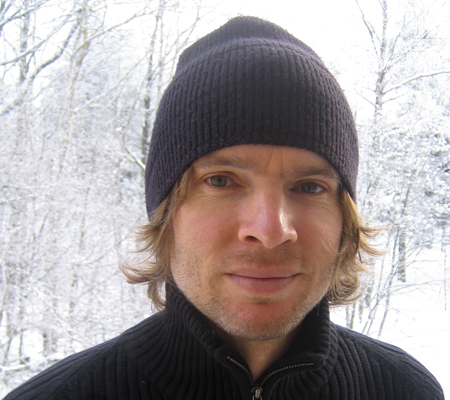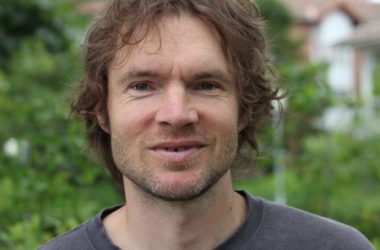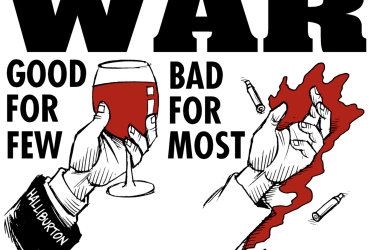By Gabriel Kuhn
A review of Matthew Wilson’s Rules Without Rulers: The Possibilities and Limits of Anarchism (Winchester/Washington: Zero Books, 2014). Also published on AAP.
Matthew Wilson’s Rules Without Rulers is a curious book. Just when I thought that I had read the most convincing pummeling of anarchism ever, Wilson, nonchalantly, states in the beginning of his final chapter: “Yet none of what I have had to say has been written with the intention of encouraging the reader to abandon anarchism (or to continue dismissing it). In fact, my rather grandiose hope is that, in challenging anarchism so thoroughly, I will not have killed it, but made it stronger.” (p. 172) Grandiose indeed.
But let’s back up for a moment. Wilson opens his book with bravado. In the “Preface”, he states:
“…the following work is ultimately an attempt to address just one reason why anarchism remains a distant dream. That reason? Anarchism. We can blame the corporate media, blame the police, the state, the schools and history books, none of which do anarchism any real favours; but if anarchism is ever to grow, to inspire, to challenge, it is anarchism itself which needs to be rethought and rearticulated. Although there is much to be said for plenty of anarchist theory and practice, on the whole it is a political movement, a political idea, which is struggling to present itself as a viable alternative. Of perhaps more concern still is how few anarchists appear bothered by this.” (p. xii-xiii).
He continues:
“It is time we took the blinkers off, stopped, or at least paused, from our critique of the world out there, and looked inwards. People will be convinced by our arguments only when our arguments are convincing.” (p. xiv)
This is brilliant. So brilliant that it is easy to lose steam as you’re diving into detailed philosophical descriptions of anarchist dilemmas, grouped around the notions of freedom, ethics, and power, which, according to Wilson, “form the basis of the … enquiry” (p. 4).
Now, steam doesn’t equal quality, and just because the philosophical reflections don’t always double down on the rhetorical punches delivered early on, they are no less important. In fact, the rare combination of philosophical sharpness and anarchist sympathy is one of the great virtues of the book.
Wilson rightfully points out that there are surprisingly few earnest discussions about some of the key challenges that anarchism has to accept if it really wants to be a serious contender for ushering in a better world. Among the many questions addressed by Wilson are how to deal with anti-social behavior, the pitfalls of consensus decision-making, and informal power structures. The book is full of precious statements such as the following about the common rejection of offering concrete anarchist visions: “…how can ‘resistance open the way to alternative’ if we cannot discuss, or debate, or share our thoughts on what these alternatives might be? … [Anarchists are often] denying not only the validity of a vanguard to prescribe how we ought to live, but, in the process, limiting the potential for anyone to engage in such thinking. What we are left with is a plurality of silences.” (p. 39)
Sometimes, Wilson’s critique of the intellectual level of anarchist discussion (or lack thereof) verges on the sarcastic, but it never runs short of entertainment value, for example when he responds to an anonymous anarchist author’s proclamation that “some communities will be dedicated to crime and drug use” with the sober comment: “It is of course hard to imagine an entire community dedicated to crime; in fact, it is not clear how we would conceptualise crime within a community if all its members were committed to it.” (p. 164-165)
Wilson is certainly right in taking anarchists to task for evading uncomfortable discussion with a “live and let live” attitude, often expressed through comments we’re all too familiar with, such as the rather meaningless “You may think what you want, but I think what I think”.
Let us return to Wilson’s concluding chapter, which I referenced above. Wilson emphasizes that his main hope for anarchism relates to its “prefigurative” dimensions. He makes a distinction between “social prefiguration” as “the creation of spaces and processes which fulfil the needs and desires of members of any community, and which do so along anarchist principles of horizontal control and mutual aid” (p. 179), and “personal prefiguration”, which presents “the case for an increased support of lifestyle politics” (p. 189). This is useful, not least because it helps overcome the tiring juxtaposition of “organization” and “lifestyle”. However, I believe that Wilson, in his sudden optimism, shies away from some of the logical consequences of his own critique: Anarchism is in many ways important, but also severely limited. The important part is to act as a permanent critic, an engine for social change, a field of experimentation for different kinds of life. We will always defend this on Alpine Anarchist. But anarchism does not offer a viable path for revolutionary change in the complex societies we live in. (For those interested: we have written more about this in “Revolution Is More Than a Word: 23 Theses on Anarchism”.)
It seems that in order to avoid drawing these conclusions, Wilson resorts to some of the phraseology he lambastes throughout his book. For example, he states in the “Preface” that “it matters little what horrors the system throws at us, as long as we are left without an alternative”, and that “at present, anarchism is not giving people the confidence to believe it can offer that” (p. xiv). But how can you ever give anyone that confidence when, in the context of sketching alternatives, “we simply need to accept that they do not provide anything like a full picture” (p. 178)? I understand that there is a gradual difference. But a substantial one?
A more serious problem might be the following: Wilson says that anarchists need to have answers to the questions he is raising in his book. But how can anarchism, a political movement that eschews doctrines, ever provide anything more than diverse and ephemeral answers? In order to meet Wilson’s expectations, there’d need to be among anarchists a common agreement on the best possible answers and a common commitment to pursue relevant political action. I cannot see that happening. Wilson himself concedes that the questions he is raising have hardly received any attention since anarchism’s inception. With all respect for Wilson and his very fine book – this will not change now either. Agreeing on answers and pursuing a particular political line is what Marxist parties have done for the past hundred years, most of them without the tiniest bit of success, but some of them with tremendous success if measured by the scope of social transformation alone. Perhaps, instead of trying to reenact this, the anarchists’ historical task is to influence such politics in a way that keeps them from degenerating into tyranny.
In this context, it is interesting to look at another recent release by Zero Books. While Wilson tries to renew the anarchist tradition, J. Moufawad-Paul’s Continuity and Rupture: Philosophy in the Maoist Terrain is looking for the latest and most timely interpretation of Marxism. Those who have read Moufawad-Paul’s The Communist Necessity (reviewed on this blog) know that his critique of “movementism” echoes Wilson’s take on the vague and intellectually often poor foundations of contemporary anarchist-inspired activist culture. Now, the consequences that the authors draw are very different: protracted people’s wars vs. “practising forms of prefigurative politics” (p. 178). But somewhere along that spectrum there’s gotta be something that can get us out of the mess we’re in.
(January 2017)
More blogs from Gabriel | Back to Gabriel Kuhn’s Author Page






